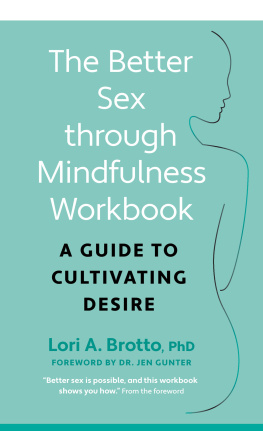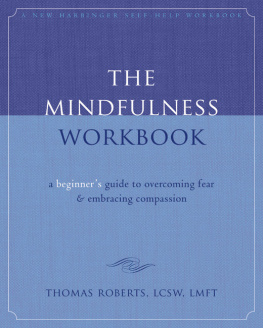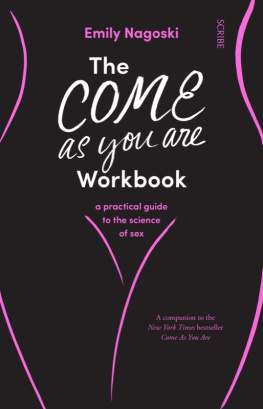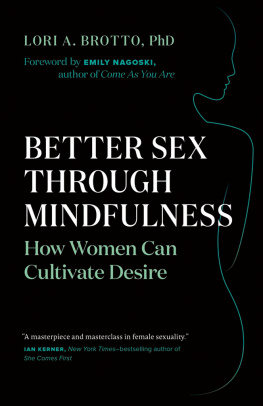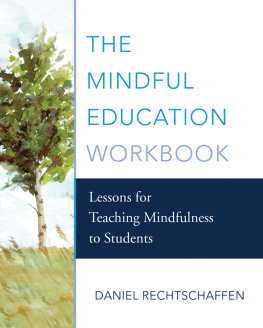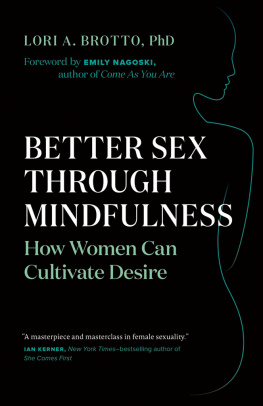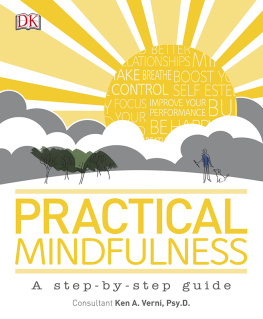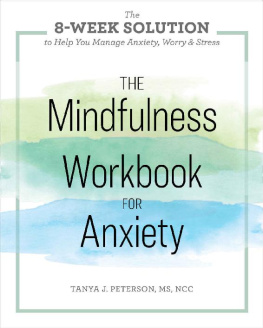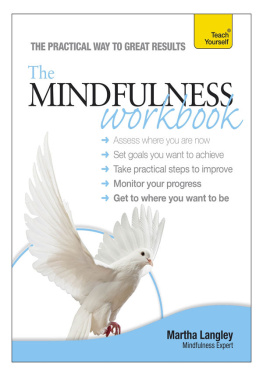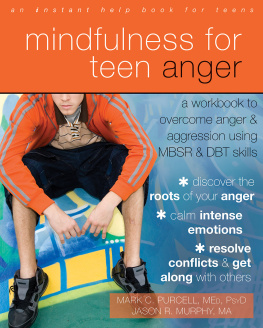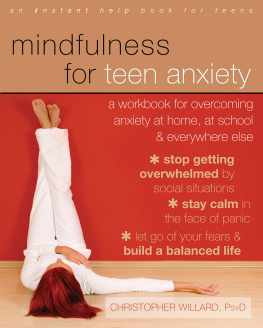Page List

To my brilliant students and research collaborators who enabled the science behind the practice.
Copyright 2022 by Lori Brotto
Foreword copyright 2022 by Jen Gunter
Illustration on p.98 copyright 2021 by Solita Work, Presence Creative
22 23 24 25 26 5 4 3 2 1
All rights reserved. No part of this book may be reproduced, stored in a retrieval system or transmitted, in any form or by any means, without the prior written consent of the publisher or a license from The Canadian Copyright Licensing Agency (Access Copyright). For a copyright license, visit accesscopyright.ca or call toll free to 1-800-893-5777.
Greystone Books Ltd.
greystonebooks.com
Cataloguing data available from Library and Archives Canada
ISBN 978-1-77164-837-0 (pbk.)
ISBN 978-1-77164-838-7 (epub)
Editing by Nancy Flight
Copy editing by Lesley Cameron
Proofreading by Jennifer Stewart
Cover design by Jessica Sullivan and Fiona Siu
Text design by Fiona Siu
Cover illustration by Nayeli Jimenez
Rumi, J. The Guest House. Translation by Coleman Barks.
A teaching story translated by Coleman Barks by owner.
Provided at no charge for educational purposes.
Greystone Books thanks the Canada Council for the Arts, the British Columbia Arts Council, the Province of British Columbia through the Book Publishing Tax Credit, and the Government of Canada for supporting our publishing activities.

Contents
Foreword
WHEN A PATIENT who has concerns about low libido, or lack of desire, comes to see me, I discuss the inaccurate messaging about sex in our society and then explain that desire need not come before arousal but can follow it, that desire can be cultivated, and that a mindfulness program can improve sexual satisfaction and reduce feelings of sex-related distress. Almost always there is silence, followed by questions.
This information is typically new to patients, and its a lot to take in, especially in the sterile environment of a doctors office. Fortunately, there is a wonderful book that explains these concepts (and so much more) in a clear, approachable mannerBetter Sex through Mindfulness, by Dr. Lori Brotto. It has been my go-to recommendation since it was published, and I prescribe it for concerns related to libido far more often than I prescribe pharmaceuticals. This book is revolutionary, and it is essential, especially in a world where pharmaceutical companies are eager to profit from distress and from misinformation about sex and desire.
But putting knowledge into action is hard for all of us, and that is why I am thrilled that Dr. Brotto has now written The Better Sex through Mindfulness Workbook. In this book, Dr. Brotto has converted her scientifically robust, in-person program into an essential step-by-step guide accessible to all. This workbook is for every woman struggling with issues related to desire, whether they are long-standing concerns unrelated to anything obvious or a new issue with a seemingly identifiable reason, such as stress or health challenges. Even women who are not facing issues with desire will find this workbook interesting and informative. I certainly did, and I talk about sex every day!
The practice of mindfulness may be unfamiliar to many, but Dr. Brottos approachable language and style demystify the concept. She has anticipated the questions and the roadblocks that inevitably crop up, and the practices that she recommends are easy to do at home and can be incorporated into even the busiest of lives. And best of all, her recommendations are based on sound science.
I had long hoped that Dr. Brotto would write such a workbook. The Better Sex through Mindfulness Workbook is an evidence-based, practical, and accessible guide that is the perfect complement to Better Sex through Mindfulness. On a personal level, I am ecstatic that Dr. Brotto has provided me with another fantastic and much-needed resource for my patients. But the real win here is that every woman now has access to a guide that can help her put the science of mindfulness into practice and improve her satisfaction with sex.
Better sex is possible, and this workbook shows you how.
DR. JEN GUNTER
Introduction
TOWARD THE END of my first book, Better Sex through Mindfulness, I noted: Based on my own observation of mindfulness, I would argue that satisfying sex is quite simply not possible without mindfulness.
Now, four years later, I am even more convinced that this is true. Studies show that sexual difficulties remain high: up to 40 percent of women will experience loss of sexual desire, reduced pleasure with sex, struggles with reaching orgasm, or sexual pain at some point in their life. And issues related to lack of adequate sex education, societal stereotypes of what constitutes healthy sexuality, and the perception that everyone else is having lots of orgasm-infused sex except me are even more common. Among the various sexual complaints, loss of or low sexual desire is the most common not only in women but also in men. At the time of this writing, two medications for treating low desire in women have been approved in the United States and Canada. However, not only have they had little real-life impact on the prevalence of sexual problems or on womens sexual desire, but also they are prescribed to only a very small subset of women who meet very strict eligibility criteria. That leaves most women who have medical health issues or significant psychological struggles, such as anxiety and depression, or who are in a troubled relationship or do not have the means to pay for these medications, without care.
Stress levels have been at an all-time high in the past several years, and have been exacerbated during the COVID-19 pandemic (ongoing at the time this book went to print). Millions of people lost their jobs within a month of COVID-19 being identified as a public health threat in North America. Many of those who shifted to working from home had to make monumental adjustments to create a workable space there. As children moved from in-class to virtual learning, parents also found themselves responsible for their childrens education. Wait lists for appointments with mental health professionals rose drastically during the pandemic, and many people were unable to access the care they desperately needed.
Despite speculation in the media that couples would be having more sex with all this time on their hands because they were no longer commuting to work and social events and childrens extracurricular activities had been canceled, the data from a 2021 study painted a very different picture. Rates of partnered sexual interactions decreased as pandemic control measures increased, likely because people felt significantly more stressed as a result of the social restrictions imposed as part of those measures. In fact, many people who work in the field are already predicting that the pandemic will have a lasting effect on sexual desire and sexual behavior.
As the months of the pandemic have worn on, mindfulness has emerged as a way to help people cope with the stress and to begin to live more in the moment. While the topic of this workbook is using mindfulness to experience a more fulfilling sex life, the skills it will help you cultivate will be useful in a broader sense as we adjust to a new normal in a post-pandemic world.

